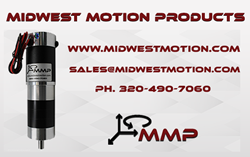ABB wins Red Dot award for FlexPacker industrial Delta robot
• FlexPacker’s compact design quality, innovation and concept of focused productivity lands prestigious award • The first industrial Delta robot to win the Red Dot award
ABB's IRB 390 FlexPacker® industrial Delta robot designed for ultra-fast packing has been chosen for the Red Dot Product Design Award - the second ABB robot to receive the prestigious award in two consecutive years.
The global Red Dot Design Awards recognize achievements in product design, with the jury - comprised of over 50 international design experts - testing and evaluating thousands of entries every year. In 2022, the Red Dot Award panel looked for products that showed design quality and a high degree of innovation - attributes that informed the FlexPacker's development from the beginning. The award reflects the importance of design in robotics as more automated solutions are rolled out to collaborate with humans and compliment skilled work to make production safer and more sustainable.
"I am delighted the IRB 390 FlexPacker received this prestigious award," said Marc Segura, President ABB Robotics. "We collaborated closely with our customers and developed a robot that could respond to the demand for more shelf-ready packaged products. As a result, we developed an innovative solution that combined speed, payload and dexterity to help our customers make their lines more flexible and able to handle the growth of low volume, high mix and higher payload production. With its clean, simple and modern aesthetic, the IRB 390 was designed to inspire confidence in users."
The FlexPacker Delta robot was designed specifically for ultra-fast, high payload picking and efficient packaging of goods up to 15kg. During its development, particular focus was placed on shelf-ready packaging, in which the products can be placed vertically, making it ideal for the food and beverage, pharmaceutical and consumer-packaging segments. Equipped with either four or five axes, the robot's ‘tilting' axis enhances its flexibility, making secondary packaging is faster and more efficient.
The FlexPacker's appearance reflects its level of functionality, with its white painted coating making it both aesthetically pleasing but also easy to keep clean. Very few horizontal surfaces and a simple, geometric shape prevents the accumulation of debris, helping it maintain its operational speed and precision.
Praised by the judges for its ‘clean design, quality and innovation,' the FlexPacker boasts two new joints, offering greater freedom. The result of a radical redesign of the standard Delta robot's parallel arms, these joints offer increased stiffness to withstand additional loads, allowing the FlexPacker to pick up more or heavier items, or use larger, more sophisticated grippers. The joints are sealed, making them maintenance free for the lifetime of the robot.
The FlexPacker Delta Robot is the third ABB robot to win the Red Dot design award after GoFaTM collaborative robot in 2021 and YuMi® dual-arm collaborative robot won the award in 2011. With ABB leading the Delta robot segment for over two decades, the FlexPacker is the first industrial Delta robot to win the award and responds to the growing trend for pick and pack solutions, saving space by replacing two six axis robots with a single five axis unit.
ABB Robotics & Discrete Automation is a pioneer in robotics, machine automation and digital services, providing innovative solutions for a diverse range of industries, from automotive to electronics to logistics. As one of the world's leading robotics and machine automation suppliers, we have shipped more than 500,000 robot solutions. We help our customers of all sizes to increase productivity, flexibility and simplicity and to improve output quality. We support their transition towards the connected and collaborative factory of the future. ABB Robotics & Discrete Automation employs more than 11,000 people at over 100 locations in more than 53 countries. go.abb/robotics
Featured Product

Midwest Motion Products is a leading provider of robust and reliable Motion Control Products.
MMP specializes in supplying high-quality Brushed & Brushless DC Motors & Gearmotors for Robotics and Automation Equipment with a wide range of motor windings and gear ratios. With an impressive track record of more than 8,000 released DC Gearmotors designs and over 2,000,000 individual part numbers, we are renowned for our ability to handle large-scale orders. Due to our huge on-hand inventory, we are also well known for lightning-fast delivery of our standard products. We take pride in our dedicated customer service and our team of knowledgeable sales and engineering experts who are ready to assist you with custom design solutions tailored to your specific application. Additionally, we also offer a wide range of complimentary products, such as DC Motor Controls, DC Linear Actuators, AC-DC power Supplies, and DC Servo Amplifiers and others.
